
FREE SHIPPING TO U.S. AND PUERTO RICO FOR ALL ORDERS $100 AND OVER!
We are unable to accept returns on any products or test kits. All sales are final.
By visiting our site, you agree to our privacy policy regarding cookies, tracking statistics, etc. Read more
FREE SHIPPING TO U.S. AND PUERTO RICO FOR ALL ORDERS $100 AND OVER!
We are unable to accept returns on any products or test kits. All sales are final.
FREE SHIPPING TO U.S. AND PUERTO RICO FOR ALL ORDERS $100 AND OVER!
We do not currently ship internationally.
Most of us are familiar with the uncomfortable burning sensation in the chest and throat that comes after eating spicy foods or consuming an especially large meal. Commonly known as heartburn, or acid reflux, it is actually an irritation of the esophagus (the tube that transports food to the stomach after swallowing) caused by digestive acids. Heartburn occurs when the muscular valve that keeps stomach acid inside the stomach does not close properly, allowing the acid to leak back into the esophagus.
An occasional incident of mild heartburn is not a matter for concern. Frequent and severe heartburn, however, can be an indication of acid reflux disease (also referred to as gastroesophogeal reflux disease, or GERD). Chronic acid reflux can wear away the inner tissue of the esophagus; this is called erosive esophagitis, a serious condition which can lead to esophageal cancer if it is not properly treated.
Many adults experience occasional mild heartburn. For most people, it is mainly an annoyance and can be treated by modifying the diet or by taking over-the-counter antacids. Chronic heartburn which occurs daily, or even several times per day, is considered severe and can lead to complications. Severe heartburn requires more aggressive treatment.
There is a muscular valve which connects the esophagus to the stomach; this valve opens to allow food in or to permit the release of gases (belching), and closes tightly to keep digestive acids from escaping the stomach. The tissue which lines the stomach is resistant to these acids, but the esophageal lining is more delicate.
When this valve (known as the LES – the lower esophageal sphincter) does not tighten properly, it allows stomach acid to seep, or reflux, into the esophagus, causing symptoms of heartburn. Two common conditions which permit this to happen are (1) excessive food in the stomach and (2) too much pressure on the stomach from outside.
Some other factors which contribute to acid reflux:
Heartburn Symptoms
Although the causes of heartburn vary from one person to another, most people experience one or more of the following heartburn symptoms:
These symptoms appear most often a short time after eating and last from several minutes to several hours. Heartburn symptoms which are very severe can be easily mistaken for signs of a heart attack, especially chest pains or a tightening sensation in the chest area.
Heartburn symptoms usually disappear quickly with the use of antacids; if you experience severe symptoms which do not abate after taking an antacid or are accompanied by shortness of breath, sweating, or pain radiating to the back or shoulders, you should seek immediate medical attention.
If you suffer from frequent heartburn, some simple changes in your eating habits and lifestyle can reduce or eliminate the symptoms.
Note: during pregnancy, it is quite common to experience frequent heartburn, because your abdomen is being compressed. Losing weight, of course, is not an option at this point; but avoiding fatty foods, eating small, frequent meals, and practicing relaxation are all helpful in reducing the frequency of heartburn. You may also find that elevating your upper body while sleeping is a good way to avoid acid reflux.
By making these changes in your daily life, you can reduce the incidence of heartburn and prevent the more serious complications which can arise from acid reflux disease. In many cases, you will experience an improvement in your overall health, as well.
If you have tried making changes to your eating habits and lifestyle, and you are still suffering from chronic heartburn, there are various lab tests which can determine if there is another underlying cause.
Blood, urine, and gastrointestinal tests can pinpoint food sensitivities and other digestive problems that could be causing your acid reflux. Metabolic testing can also identify digestive disorders that may contribute to heartburn symptoms.
If you are unable to identify the cause of your heartburn after testing for digestive problems, a doctor may perform one of several procedures. Esophageal manometry, in which a tube is inserted into the nose, through the esophagus and into the stomach, can evaluate the function of the lower esophageal sphincter to determine if it is working properly.
A barium x-ray test can detect changes to the esophageal lining, or your doctor may want to perform a biopsy by removing a small portion of the tissue for testing. Another method is esophageal pH monitoring, where a small sensor is placed in the esophagus to record the level of acidity. In a minority of cases, surgery may be required to correct esophageal damage or LES function.
There is an endless variety of over-the-counter antacids available for combating heartburn, and for chronic acid reflux, there are any number of conventional prescription medications. Prescription medications only cover up the problem, however, and symptoms of heartburn generally recur soon after you stop taking them. If you would prefer to treat your symptoms naturally, rather than relying on a prescription medication for a lengthy period of time, there are options available to you.
Prescription medications can be effective in treating the symptoms of acid reflux as long as you keep taking them, but they do not address the root of the problem. Using natural products can improve digestive health and eliminate many underlying conditions that contribute to heartburn.
Showing all 9 results
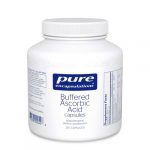
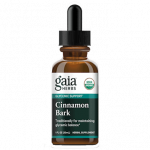
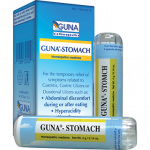
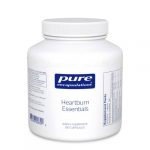
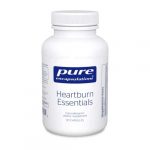
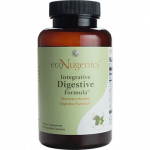
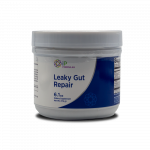
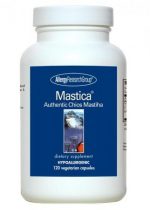
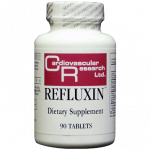
This site is protected by reCAPTCHA and the Google Privacy Policy and Terms of Service apply.